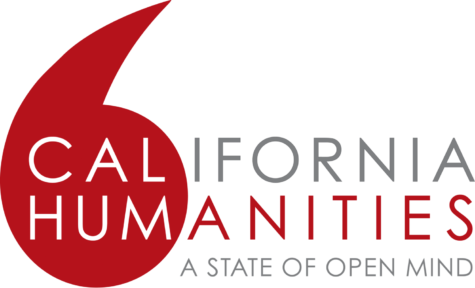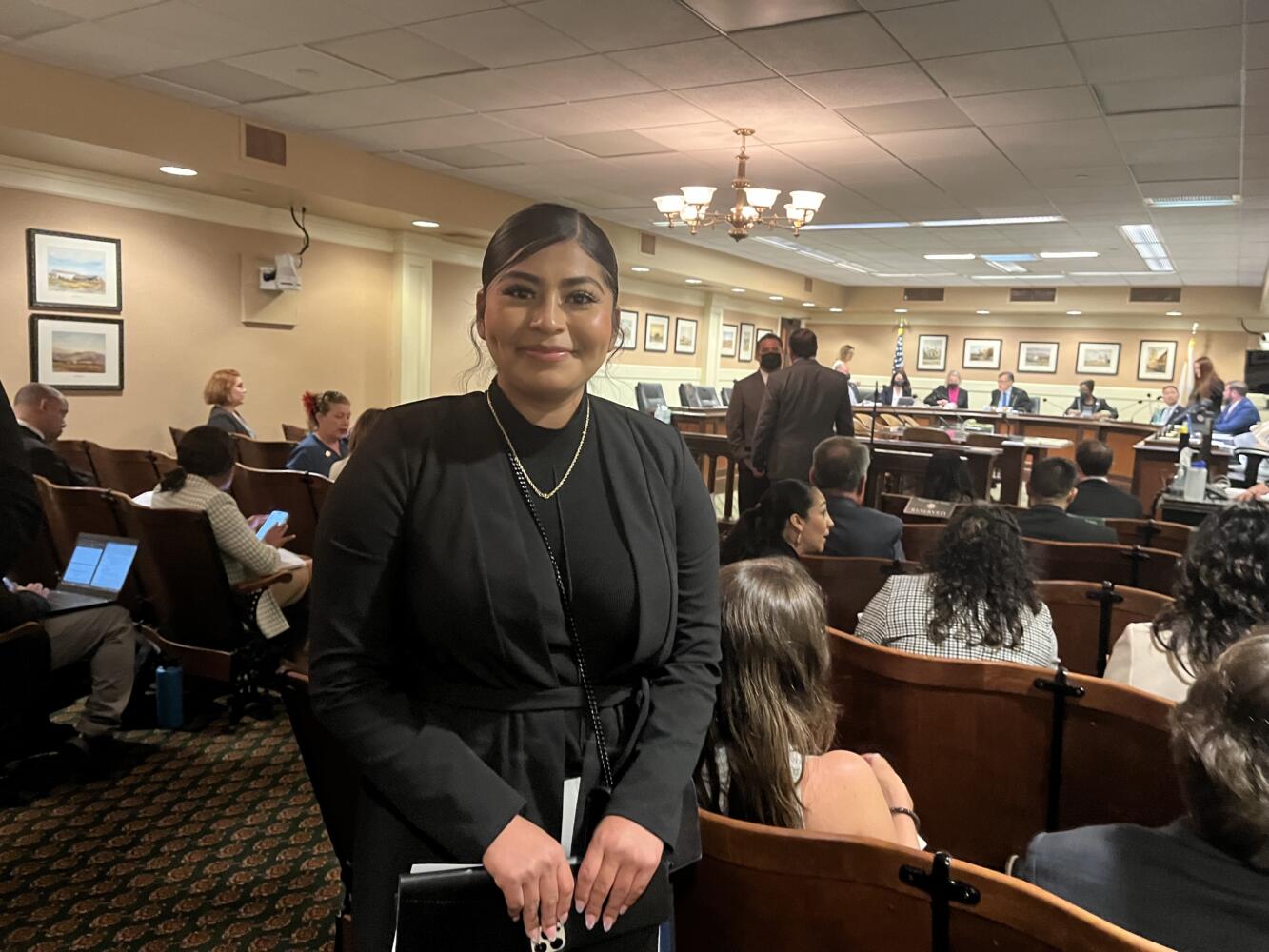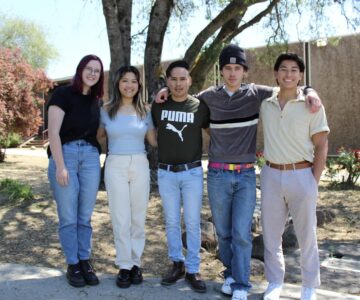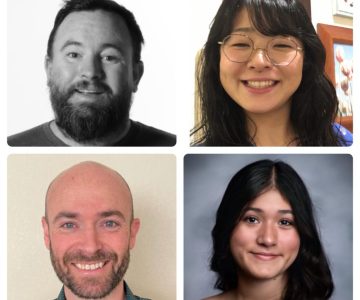The things we take for granted. In our daily coexistence with different people, we take many things for granted. However, there are people in difficult circumstances who belong to minorities and even if they work hard and excel in school, they may not be able to go to college. Some might not even be able to attend community college, which is known to be the most financially accessible.
The Rocklin region surrounding Sierra College’s main campus is more diverse than some may think, yet it is still lacking in educational equity. Some undocumented students don’t always get clear information about their right to go to college.
Legislation like AB540 allows undocumented students who have gone to high school in California for three years and completed their degrees to pay in-state tuition. This is thousands of dollars less than out-of-state tuition, making the cost of college more affordable and realistic.
Like many other young people, Joselin Pacheco Hernandez aspired to go to college. In an interview I did with her on April 5th, 2023 at Capital-One Coffee in Roseville, she said:
“I feel like a lot of people think after high school being able to work a 9 to 5 job is living the life. But in my eyes, it didn’t seem that way. I feel like an education speaks louder than money.”
Today, Hernandez is majoring in Economics with minors in Business and Accounting. She is the current Director of Programs for the Associated Students of Sierra College (ASSC), the president of the Puente club, a Student Ambassador for CalFresh, and an i3 Coordinator. Hernandez is the incoming 2023-2024 President of the ASSC and a Student Trustee. Her road to becoming a college student and a leader on Sierra College’s Rocklin campus did not come without some twists and hardships of being undocumented.
A Young Pathbreaker
Hernandez was born in Oaxaca, Mexico. When she was three years old, her parents fled poverty with her and her big sister and ultimately landed in Roseville, California. Her father found work in construction and landscaping and her mother took care of the family– which soon grew to include more children.
Her parents worked hard when they arrived: to pay bills, save money to buy a car to get to work, shop for groceries, and go to the laundromat on their day off, and they still continue to work hard.
At four-years-old, Hernandez entered early kindergarten in Roseville and then went to George Cirby Elementary School. In addition to the many things learned in grade school, she began learning English. Learning the language as a child facilitated her relationships with other children and teachers.
By first grade, her English improved, and she began to break the language barrier. After the second grade, the language no longer posed many challenges for her. In the last years of elementary school, she began to run for representative positions in government such as elementary school president.

In middle school, Hernandez continued in leadership and got involved in other extracurriculars such as flag football. She also maintained good grades with consistent academic work.
As a freshman in high school, she tried out for the football team. She said: “I joined the football team– guys’ football team. Me and another girl were on the JV (junior varsity) that year. But when it came down to varsity, I was the only female football player. I love sports. In general, I like physicality, that’s the whole reason why I joined football.”

Although being on the team and playing varsity football as a female may have challenged some people’s views, this didn’t faze Hernandez.
During high school, along with being active in sports, she worked in a restaurant to earn money, and still kept up her grades. In her social life, she struggled with a bully who persisted over years, even when she reached out to adults in authority positions for help.
By her junior year in high school, Hernandez decided to move to homeschooling. She graduated early from a local charter school called Horizon Charter School.
At Horizon, she received counseling on life after high school. Her counselor told her that she could not attend college because she did not have a Social Security number.
Previously, the DACA program had been an option that made college going possible for many undocumented youth. But when it came time for Hernandez to have a chance to go to college, DACA had been put on hold. Hernandez said:
“They told me, you can’t go to college because of your situation, the only hope is for DACA to reopen.” She explained:
“I felt like– You know, when you’re a little kid and you’re waiting for the ice cream man to come out and come to your apartment building? Well, I was a little kid waiting for DACA to reopen but unfortunately it didn’t reopen. So I was like, wow. I don’t think I’ll ever go to college. Once it stopped, my heart dropped. I was like, damn. I would never go to college.”
When her dream of going to college wasn’t going to happen, her only option was to work full-time. However, job prospects were limited and unpromising. She found work cleaning houses, but was paid very little: “From 8:00 in the morning, until 3:00 or 4:00, I was getting paid $90, which wasn’t good because I was working hard and… not even minimum wage. That was very unfair.”
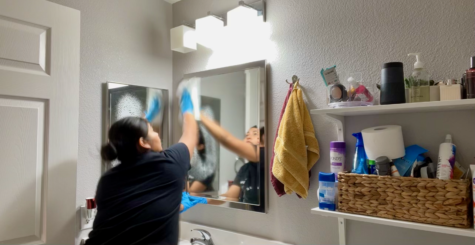
Not having a Social Security number often forces undocumented people to work in low-paying, physically demanding jobs. Whereas, clear information can open doors for undocumented people to pursue college and improve aspects of living such as income, working conditions, and even becoming business owners.
Hernandez struggled as a house cleaner because like most people she knew, her work could be better paid. Work is where a person spends most of their life to provide for themselves and their families. She knew work should not just be something to put food on the table, but something that feeds the mind and the spirit, too.
Getting the Good News
After two years of cleaning houses, Hernandez found out that one of her acquaintances who was also undocumented, got into college. So, she decided to ask her how. Hernandez said: “This girl that I knew was going to college but she’s also in the same status as me. I was like, wait! … How is she going to college? And then she told me about Gladys and Joe that helped her get in. So, I reached out to Gladys and Joe– I was, like… ‘I want to go to college, but I’m undocumented. Am I still able to go to college?’ and they said, ‘Yeah!’”
Gladys Puente is the former Undocumented and International Student Office Coordinator and Joe Avila is the current Sierra College Financial Aid Specialist who serves undocumented and students in mixed status families. The Sierra College Undocumented Student facebook page awarded Avila an undocumented student supporter, “Undocually Award,” recently.
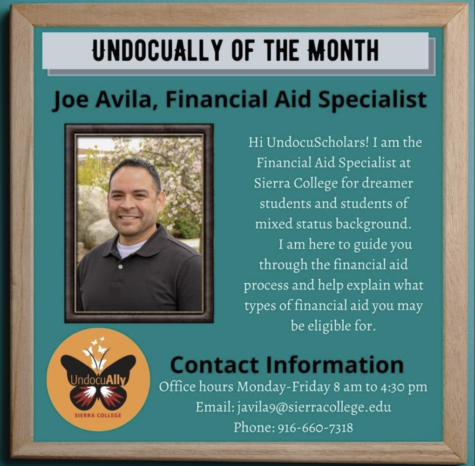
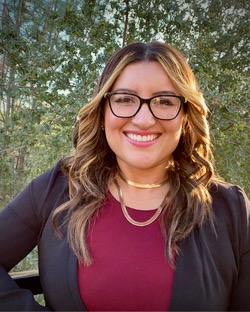
Avila and Puente and others in similar positions like them who care can help get undocumented students news they need that can change their lives.
In our interview, I couldn’t help but share some of my story with Hernandez, too. First she said, “Knowing that I was told not to go to college– but then by filling out the application with the college and stuff like AB540, I got accepted!”
She said, “Once that happened, I feel like everything went by fast. Once I applied to Sierra College during the summer, I attended Sierra College, which was my first semester ever!” She described the experience:
“It just seemed so surreal– just being able to go to college knowing that you were told not to– that you were told you would not be able to go to college.”
I said, “Yeah, let me tell you something really quick… I visited American River College, and when the coordinator of the Undocu-Scholars told me about this AB540 program and the possibilities to go to college and get a degree from university– I still remember, I went to the restroom and took a selfie! I was really, really happy. I think I cried, but this cry was coming from joy–”
Hernandez knew the feeling. She said:
“Joy! Happiness. Happiness– nobody would understand that. I feel like nobody could understand the feeling that you are in college. I feel like a lot of people take education for granted.”
She continued: “And one thing I’ve learned through my process of going to college and being told that I was unable to go to college is that one thing nobody can take away from you is education. The more you are willing to educate yourself, the more you are willing to learn, the more doors are gonna open to you.”
An Undocu-Student Leader for All
Once at Sierra College, Hernandez started getting involved and soon decided to run for ASSC President. 2023 student elections took place from March 28th-30th. Two weeks prior, all candidates are able to develop campaigns and make posters for themselves to attract votes from students. Candidates are allowed to print 50 copies from the College. Hernandez designed her own poster.
At the end of the campaign for President of the ASSC, Hernandez won the election. As president, she will serve on the Board of Trustees as the Student-Trustee. Significantly, Hernandez made history as the first undocumented student to be an ASSC President at Sierra College.
In addition to being a leader at Sierra College, Hernadez has also emerged as an activist for the rights of undocumented students. On April 11, 2023, she gave a testimony at the State Capitol in Sacramento in support of AB680.
She explained: “… it will enable students like myself to be able to complete an Associates Degree for Transfer (to a 4-year university) without having to take unnecessary coursework and pay thousands of additional dollars to be able to apply for AB540 status, before transferring… Undocumented students will be able to qualify for state financial aid and afford the total cost of the college.”
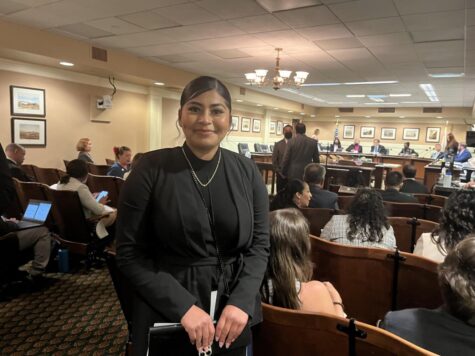
In closing, I end with a message for undocumented students that Hernandez gave at the end of our interview. She said: “So, my last message to every undocumented student is to never give up on your dreams, to keep working hard. If you really want something, go for it. If someone tells you that you can’t do it, prove them wrong, keep working for what you want. Don’t give up. Just know that if a door closes, don’t be sad about it– just make that your motivation to keep going because the next door is bigger than the first door.“
Reported and Photographed by Luis Antonio Carreon | Written by Luis Antonio Carreon and Ethan Yamaguchi
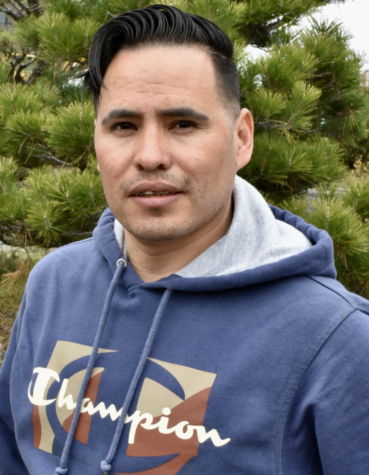
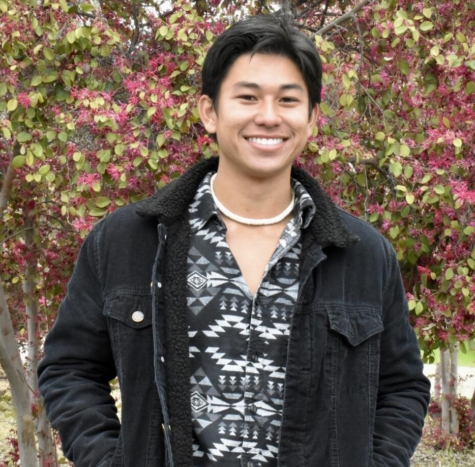
Editor’s Note
This article is one in a set of stories called, “Everybody is Entitled to Equity,” that were supported through the California Humanities “Emerging Journalist Fellowship.” The Fellowship awards up to four student-fellows in Journalism programs at California Community Colleges funding to do community-based journalism. This is the second year that the Sierra College Journalism program has received this significant statewide award. In 2023 at Sierra College, additional support for a fifth fellow was awarded through the Sierra College Foundation.
Any views or findings expressed in the five stories that make up, Everybody is Entitled to Equity, published here on Roundhouse News & Review, do not necessarily represent those of California Humanities or the National Endowment for the Humanities, or the Sierra College Foundation.
